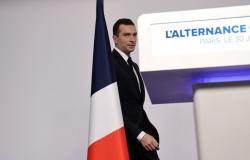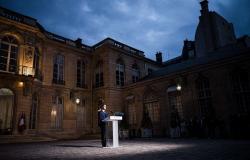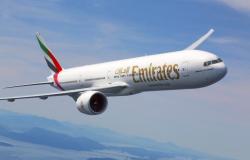Thanks to the concrete vision of HM King Mohammed VI, Morocco is giving itself even more means to ensure its sovereignty and strengthen the competitiveness of its economy, while strengthening the transparency and good governance of public services.
Royal Palace in Casablanca, June 1, 2024.
Saturday June 1, 2024, HM King Mohammed VI chaired a Council of Ministers unlike any other, in that he outlined the contours of the future of the Kingdom, emphasizing transparency and good governance of public services.
It all started with the presentation by Nadia Fettah, Minister of Economy and Finance. This focused on the strategic orientations of the State’s shareholder policy, a shared framework capable of redefining the role, positioning, portfolio and mode of intervention of the State in the different sectors.
“This approach is part of the Royal Guidelines and aims to improve the management of public establishments and enterprises, ensure an accessible and quality public service offering, and accelerate the implementation of a coherent shareholder policy,” said specified the minister. Ms. Fettah underlined that this shareholder policy is structured around seven strategic orientations.
First, make public establishments and enterprises a strategic lever to consolidate national sovereignty, by supporting the efforts of the State in vital and strategic sectors such as energy, health, water, food security, environment, connectivity and mobility. Second, make it a driver of continental and international integration to respond to geostrategic challenges and strengthen South-South cooperation, particularly with African countries. Third, use it to boost private investment, a provider of productive jobs, through partnerships with the private sector to strengthen the dynamics of public services on a regional scale within the framework of advanced regionalization.
Military decrees
Fourth, it is about strengthening the governance and performance of public establishments and companies, by implementing active management of their portfolio to enhance their assets and improve their performance. The Council of Ministers then examined and approved four decrees relating to the military domain, to improve the professional and social conditions of members of the Royal Armed Forces (FAR). The first decree concerns the establishment of industrial zones to accommodate defense industries relating to defense and security equipment, weapons and ammunition. In a context marked by geopolitical uncertainties, this national ambition has finally found its way towards realization with full respect for national sovereignty, after the promulgation in 2020 of Law No. 10-20 which establishes the legal bases for producing locally different types of equipment and weapons in cooperation with private manufacturers.
The second decree deals with the status of medical teacher-researchers, through modifications relating to the strengthening of scientific and academic excellence, the rationalization of promotion procedures and the granting of specific allowances to teachers in military hospital establishments. The third decree concerns coordination in hydrography and oceanography, through the inclusion of the Minister of Foreign Affairs in the National Coordination Committee to strengthen the management of the fields of hydrography, oceanography and marine cartography. .
Structural projects
Born within the Royal Gendarmerie, this Committee, set up in 2014, has several functions, such as the security of maritime transport, rescue and the delimitation of maritime borders which is a diplomatic subject. Hence the importance of establishing a bridge between the Ministry of Foreign Affairs and this Committee, particularly in view of the current geopolitical situation.
The fourth and final decree concerns military attachés abroad. The novelty is the creation of a post of military attaché at the Moroccan embassy in Brazil to strengthen bilateral ties, given the strategic importance that this diplomatic representation now has.
Subsequently, the Sovereign made several important appointments closely linked to the policy of good governance of public services and the structuring projects of the Kingdom clearly defined at the start of this Council of Ministers. Thus, Mustapha Farès was appointed director general of the National Ports Agency (ANP), Mohammed Cherkaoui Eddeqaqi becomes director general of the Société nationale des autoroutes du Maroc (ADM), Tarik Hammane takes the head of the National Office of Electricity and Drinking Water (ONEE), Tarik Moufaddal was appointed president and CEO of the Moroccan Agency for Sustainable Energy (MASEN) and Adil El Fakir director general of the National Airports Office (ONDA).
Good appointments which show that they are the right people in the right place at the right time. Experienced, dynamic and efficient young and old people who have proven themselves elsewhere and who are able to meet the current challenges of the economic, social, political, geopolitical and environmental context. It is also proof that Morocco is giving itself the means to ensure its national sovereignty and strengthen the competitiveness of its economy, following a royal, clear and ambitious vision.






